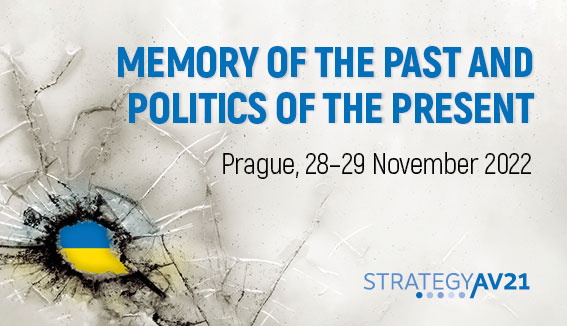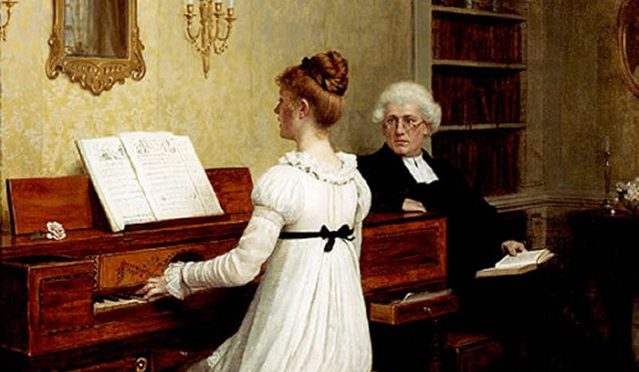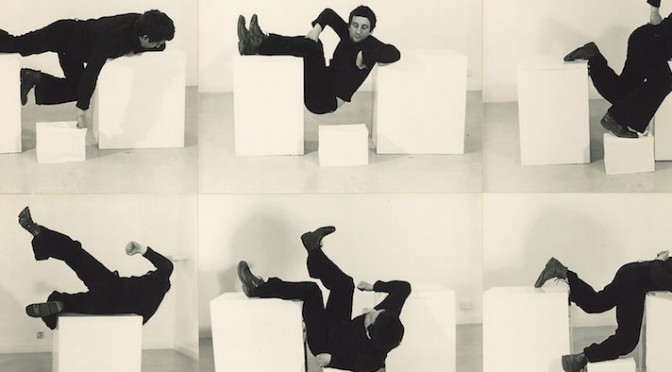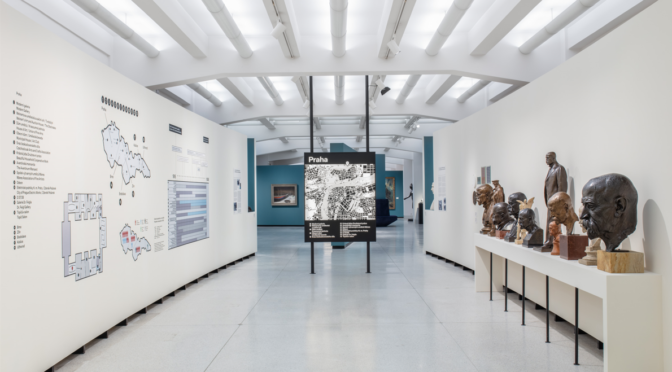
International conference
Date: 28 & 29 November 2022
Venue: Goethe-Institut, Masarykovo nábřeží 32, Prague 1
Organizer: Institute of Contemporary History of the Czech Academy of Sciences within the Strategy AV21
Partners: Centre français de recherche en sciences sociales, Deutsches Historisches Institut Warschau, European Network Remembrance and Solidarity, Stiftung Sächsische Gedenkstätten Continue reading Memory of the Past and Politics of the Present →

Music as a Universal Form of Art ? Internationalization of Musical Life and Forming of National Identity in 19th Century Europe
A lecture by Michael Werner (CNRS-EHESS) on the occasion of the workshop When All Roads Led to Paris.
When & Where: from 6 pm to 7:30 pm, French Institute in Prague, Štěpánská 35, Prague 1, 5th floor
Language: French with simultaneous translation in Czech
Abstract (FR)
Dans la conférence, on reviendra sur les transformations de la vie musicale en Europe au 19e siècle, en particulier relatives au concert. On assiste en effet à un phénomène paradoxe : d’un côté une véritable internationalisation, fondée, entre autres, sur la mobilité des musiciens, la constitution d’un répertoire, l’émergence d’un marché et d’une presse spécialisée ou encore la professionnalisation des métiers de la musique. De l’autre une nationalisation progressive des schèmes interprétatifs de la musique et des phénomènes de réception, voire l’appropriation de la musique par les mouvements nationaux. On proposera quelques outils d’analyse permettant d’éclairer ces mutations et de les inscrire dans une histoire croisée des cultures en Europe.

Michael Werner is a research director at Centre national de la recherche scientifique, and a lecturer at École des Hautes Études en Sciences Sociales in Paris. His main focus is history of social and cultural relations between France and Germany between and 18th and 20th century. Along with Michel Espagne he introduced a theory of cultural transfers; with Bénédicte Zimmermann he then developed a similar concept of „histoire croisée“, i.e. entangled history. Besides cultural transfers between France and Germany, Michael Werner focuses also on the perspectives of entangled history in humanities, on literary science and social history of music. The latter will be the subject of his Prague lecture.
- Begegnungen mit Heine. Berichte der Zeitgenossen, Hamburg, 1973, 2 vol.
- avec Michel Espagne, La construction d’une référence culturelle allemande en France: genèse et histoire (1750-1914), Annales. Économies, Sociétés, Civilisations 42, 1987, no 4, p. 969-992.
- avec Bénédicte Zimmermann (éds.), De la comparaison à l’histoire croisée, Paris, 2004.
- Musikgeschichte als « Histoire croisée ». Zu den Verflechtungen des Musiklebens, in : Anne-Madeleine Goulet, Gesa zur Nieden (éds), Europäische Musiker in Venedig, Rom und Neapel (1650-1750) / Les musiciens européens à Venise, Rome et Nâples (1650-1750), Kassel, Laaber, 2015 (Analecta musicologica 52), p. 49-67.
Illustration : The Piano Lesson, Edmund Blair Leighton (1896)
A lecture by Agnieszka Wierzcholska (Free University of Berlin) in the frame of the seminar on Modern Jewish History of the Institute of Contemporary History (AV ČR) and CEFRES in partnership with the Masaryk Institute (AV ČR).
Where: CEFRES library, Na Florenci 3, 110 00 Prague 1
When: from 5:30 pm to 7:00 pm
Language: English
Abstract
Tarnów in southern Poland has been a Polish-Jewish town for centuries. Prior to the Second World War almost 50% of the town’s inhabitants were Jewish and the remaining half were Catholics. Relations between Jews and non-Jews were a normal part of everyday life among neighbors, schoolmates, and in local politics. During the Shoah the murder of the town’s Jews took place on the streets of the town, right before the eyes of the non-Jewish neighbors. Of the 25,000 Jews who lived in Tarnów in 1939, only a mere thousand returned, and only a few hundred stayed.
What happens to a town where the German occupier destroyed the Polish-Jewish Lebenswelt? The social fabric changed dramatically since 1939 and the local community became an occupied society. The antisemitism that arose in the town in the late 1930s intertwined with German anti-Jewish policies in many ways. Due to the proximity of violence, non-Jewish Poles were implicated in the Shoah. On the other hand, we must also ask which local networks proved to be resilient, what friendships turned out to be lifesaving, and what contacts proved to be dangerous? Finally, what happened to the town when the German occupier left in January 1945 and half of its population – the Jewish part – was gone?
This talk retraces the everyday life of a Polish Jewish town, bridging the caesuras of World War Two in order to retrace the continuities within the upheavals and to reiterate individual life stories.
A lecture by Karolina Szymaniak (Wroclaw University) in the frame of the seminar on Modern Jewish History of the Institute of Contemporary History (AV ČR) and CEFRES in partnership with the Masaryk Institute (AV ČR).
Where: CEFRES library, Na Florenci 3, 110 00 Prague 1
When: from 5:30 pm to 7 pm
Language: English
Abstract
When in 1988 poet Marcin Świetlicki formulated in the now famous poem his sharp criticism of the rhetorics of cultural opposition and its possession by history, he wrote: „Instead of saying: I have a toothache, I’m/ hungry, I’m lonely (…)/ they say quietly: Wanda/ Wasilewska, Cyprian Kamil Norwid,/ Józef Piłsudski, the Ukraine, Lithuania/ Thomas Mann, the Bible, and at the end a little something/ in Yiddish” (trans. W. Martin). As Eugenia Prokop-Janiec has shown, in the 1980s Yiddish came to be treated as a part of the code of independent culture, and investment with it became a form of resistance. But what was this undefined „little something” and what tradition was underlying its presence in the Polish discourse? What meaning and content was it endowed with? How does this tradition bear on contemporary representations of the Jewish Polish past and the way we write the history of culture in Poland?
The talk is a discussion of existing and possible approaches to the study of Yiddish Polish cultural contacts in the 20th century, their limits, and ramifications. It is a working presentation of an on-going project. By turning to the history of Yiddish Polish cultural relations and their discourse, and interpreting them through a different lens of cultural studies, the study also seeks to think other ways of conceptualizing history of culture in Poland. An approach that includes the minority perspectives and respects their independence, and create a space where the „little something” turns into a complex polyphonic phenomenon in its own rights.

Tenth session of IMS / CEFRES epistemological seminar of this semester led by:
Tereza Sedláčková (FSV UK, associated at CEFRES)
Topic: Multiplicity of Body
Where: The session will be conducted over a videoconferencing platform. Registration: adela.landova@cefres.cz
When: Wednesday 29 April 2020, from 4:30 pm to 6 pm
Language: English
Texts to be read:
- Annemarie Mol: The Body Multiple. Ontology in Medical Practice. Duke University Press 2002. Chapter 1.

Museums and their narratives
Is the « national » label a thing from the past?
A roundtable discussion organized within a new cycle of meetings Résonnances / Rezonance by the Institute of Philosophy of the Czech Adacemy of Sciences, CEFRES, the French Institute in Prague, and the National Gallery in Prague
Date: March 12, 2024, 5:00–6:30 pm
Location: Trade Fair Palace (Veletržní palác), National Gallery Prague Dukelských Hrdinů 47, Prague 7 (Auditorium, 6th floor)
Language: French and Czech with simultaneous translation
Participants
Sébastien ALLARD (Director of the Paintings Department, Musée du Louvre),
Danièle COHN (Professor of esthetics and philosophy of art, Université Paris I),
Milena BARTLOVÁ (Professor of art history, Academy of Arts, Architecture, and Design in Prague – UMPRUM)
& Anna PRAVDOVÁ (Curator of the Modern collections, National Gallery Prague – NGP)
Chair: Lara BONNEAU (philosopher, Institute of Philosophy of the Czech Adacemy of Sciences – FLÚ AV ČR)
Abstract
Continue reading Museums and their narratives →





